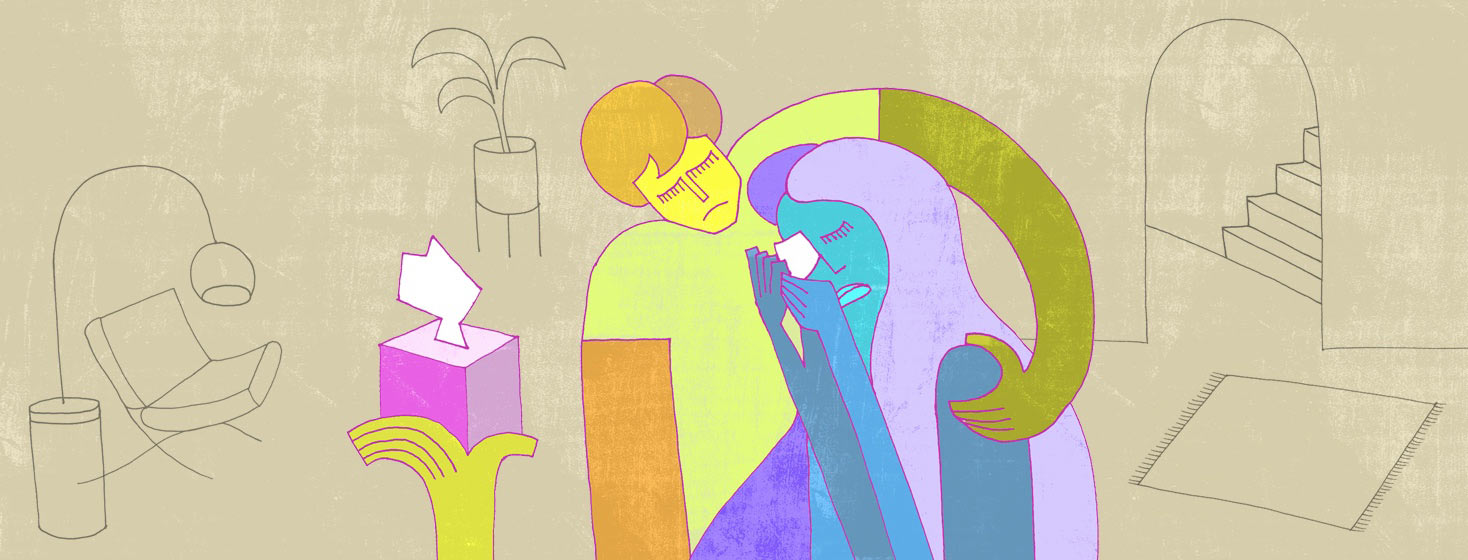Understanding Grief with Hepatitis C and Liver Disease
With hepatitis C and chronic illness, patients and families can struggle with feelings of loss and grief. Hepatitis C and chronic liver disease doesn’t just affect the patient, but the entire family as well.
Patients and families affected by liver disease or chronic illness can experience a variety of emotions from each phase of illness, from diagnosis, tests, treatment, and recovery, as well as if there are associated conditions that are long-lasting.
Recognizing and understanding the stages of grief is the first steps in moving through it with love and care. Honesty and openly acknowledging each stage of grief, along with time, will help you heal emotionally and give you the strength to help you physically.
Understanding grief and loss
There are five stages of grief. Each one can happen in no particular order. We can return to various stages several times or work through some of them simultaneously. The length of time for the person to move through each stage is different for each person. Some patients and family can move from one stage to the next, yet never reach the final stage of acceptance. It is vital to process our pain in a healthy and thorough way, in order to get on the other side of it. There is great hope for healing emotionally on the other side of grief.
Stages of grief
Stage 1: Denial. Feelings of shock, and avoiding the painful reality of diagnosis, can be hard for patients and family to accept while dealing with questions of how their life is affected in many ways.
Stage 2: Anger. Being honest and open about your feelings and the changes you’re experiencing and what you’re afraid and concerned about will help work through anger.
Stage 3: Bargaining. You may find bargaining or taking certain actions as a means of reasoning if you take a certain action that will change your condition.
Stage 4: Depression. Feeling despair over the situation or condition. Depression or feeling down over loss or change is normal, but caution and intervention is needed when you’ve felt depressed for an extended period of time or if depression is leading to suicidal thoughts. Good communication with family, friends, help from your physician and/or counsel with a professional can help work through depression.
Stage 5: Acceptance. Gaining a positive attitude and outlook comes from working through the stages of grief. Your physical condition or situation may not have necessarily changed, but a positive attitude will help give you the strength to move toward what is good and healthy.
Help for working through grief
It often helps to talk to a professional counselor, pastor, or life coach to help the patient and family understand and work through each stage of grief. Support groups also help patients and family in a safe, understanding environment. Many support groups are available online, as well as physical groups. Ask your physician and healthcare providers for recommendations for physical support groups in your area.

Join the conversation